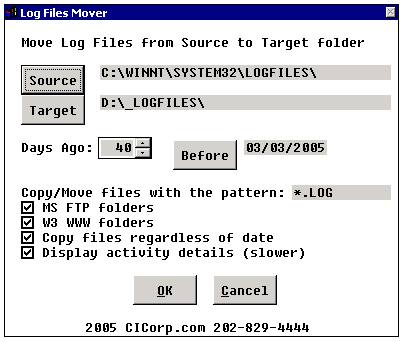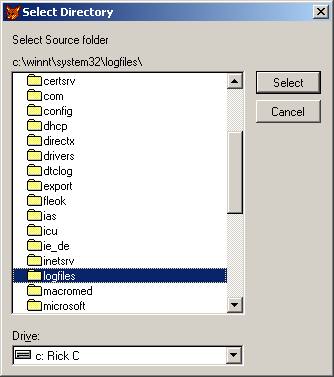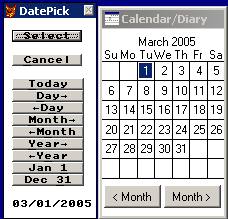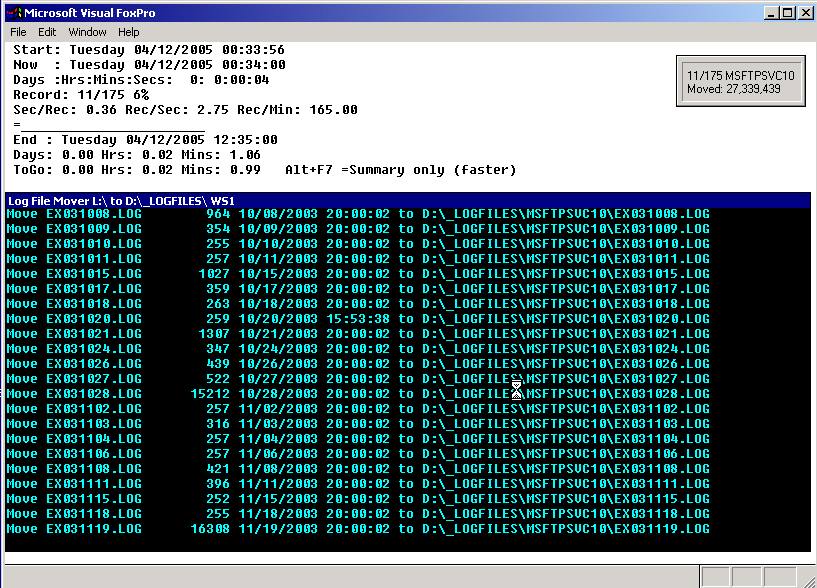
LogFileM.Exe
Web Server Log File Mover
File 'em away with this helpful Webmaster utility

 |
LogFileM.Exe
|
 |
| MSFTPSVC1 MSFTPSVC2 MSFTPSVC3... |
Microsoft FTP Service folders for each web site hosted on the server |
| W3SVC1 W3SVC2 W3SVC3... |
World Wide Web (W3) Service for each web site hosted on the server |
|
|
|
|
Log File Mover is to the rescue! Just launch the LogFileM.Exe from the desktop to see the main menu.

Move *.LOG (or any file pattern) from a Source folder to the specified Target Folder
First select the source folder, such as
C:\WINNT\System32\LogFiles

Click the "Before" button to bring up the Calendar.
Select the most recent date of the files you want to archive.
Any filer older than this date will archive.
The newer files will stay put and be unmoved.

The default is 30 days. You probably want to move off
the server the files
that have a date older than 30 days. Log files with today's date are
automatically skipped, because those Log files are still being made.
It is possible, because of time zones, that people are
browsing your web site
from Europe where it is already "tomorrow" so those log files are also skipped.
You can select whether you want it to display the details of
the activity.
But this slows down the process somewhat.
You can press Alt+F7 any time to go in to the fastest mode.

Here is a an actual log file, showing that LogFileMover freed up over 1 Gigabyte of space on the C: drive by moving the log files to the D: drive where there was still plenty of space.
.Click to see LogFileM.Txt (2.5 megabytes)
Before
|
After
|

C I Corporation
P.O. Box 100411
Arlington, VA 22202
703-486-2222
800-319-3190 877-727-9070 Fax
CIC@CICorp.com